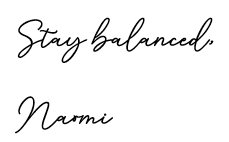Getting to the Bottom of Burnout

Burnout is More Common Than You Think
Many of my clients come to me because they are struggling with burnout.
I can relate. I was no stranger to burnout during my time in the corporate world. I used to wear my unwavering dedication to my job like a badge of honour, using it as proof that I was a high achiever who was willing to “do what it took” to be the best employee. This eventually caught up with me, and I ended up struggling with lack of motivation and exhaustion. Little did I know, this cycle was slowly chipping away at my well-being and quality of life.
I was in good company. Burnout in professionals is so common that the World Health Organization declared it an occupational phenomenon in 2019. 75% of professionals experience it, at least sometimes, according to a Gallup poll from 2020. In fact, burnout has become so pervasive that many people have come to accept it as an inevitable reality of managing demanding careers, families, hobbies, friendships, and other responsibilities. Busy-ness and productivity have become so glorified that we only have to glance at our LinkedIn newsfeeds to see how normalized hustle culture has become.
It doesn’t have to be this way.

Spotting Burnout: Red Flags to Watch Out For
How do you know if you’re burned out? Burnout can have a way of sneaking up on us without us noticing. Here are some of the classic signs:
Fatigue: Lacking in energy and feeling tired, even after a full night’s sleep.
Decreased motivation: You’re not as into your work, hobbies, and daily activities as you once were. You may struggle to get excited about the things you used to love.
Increased irritability: You are more easily frustrated, and little things bother you more than usual.
Trouble concentrating: You might find it hard to focus, follow conversations, or make decisions.
Physical symptoms: You’re having headaches, muscle aches, and other physical symptoms that you didn’t used to have.
Insomnia or sleep problems: You can’t seem to fall asleep, stay asleep, or have good quality sleep.
Increased absenteeism: You find yourself missing work and other commitments more than you used to.
Feelings of helplessness: It may feel like you’re stuck in a never-ending cycle of stress and exhaustion.
Neglecting self-care: You may have slowed down or stopped your self-care activities entirely.
Tips to Manage Burnout and Reclaim Your Energy
So you think you may be burned out; what next? While it’s true that the situation around you can be one of the biggest contributors to your burnout, there are steps you can take on your own that can help:
Be Kind to Yourself: It’s easy to let self-care slip when we’re busy. What brings you joy, relaxation, or connection? How often are you engaging in those activities? Try to make more time for self-care, even if only for a few minutes a day to start.
Reach out to Your Support Network: Do you have colleagues, friends, or family who you can vent to, commiserate with, or laugh with? Connecting with others can help you feel less alone and more supported.
Set Realistic Boundaries: Often, our tendency to overcommit in our professional and personal lives can leave us feeling depleted. Consider where in your life this tends to happen and re-evaluate your priorities. Where can you make changes?

How Talk Therapy Can Help
It can be challenging to know whether what we’re feeling is burnout, or something else. Or, you may know you’re burned out, but are feeling overwhelmed with the idea of handling it on your own. Talking to a therapist can be an effective form of support when the do-it-yourself options just aren’t enough. Through getting to know you, a therapist can help you understand what your personal signs and symptoms are, and what may be at the root of them. They can then work with you on creating a personalized plan that feels realistic for you, to help you break your burnout cycle.
You are not alone. I know firsthand what professional burnout feels like, and the unique challenges that come with carrying the weight of responsibilities at work and home. Therapy can help.
Please reach out if you’d like to learn more.
